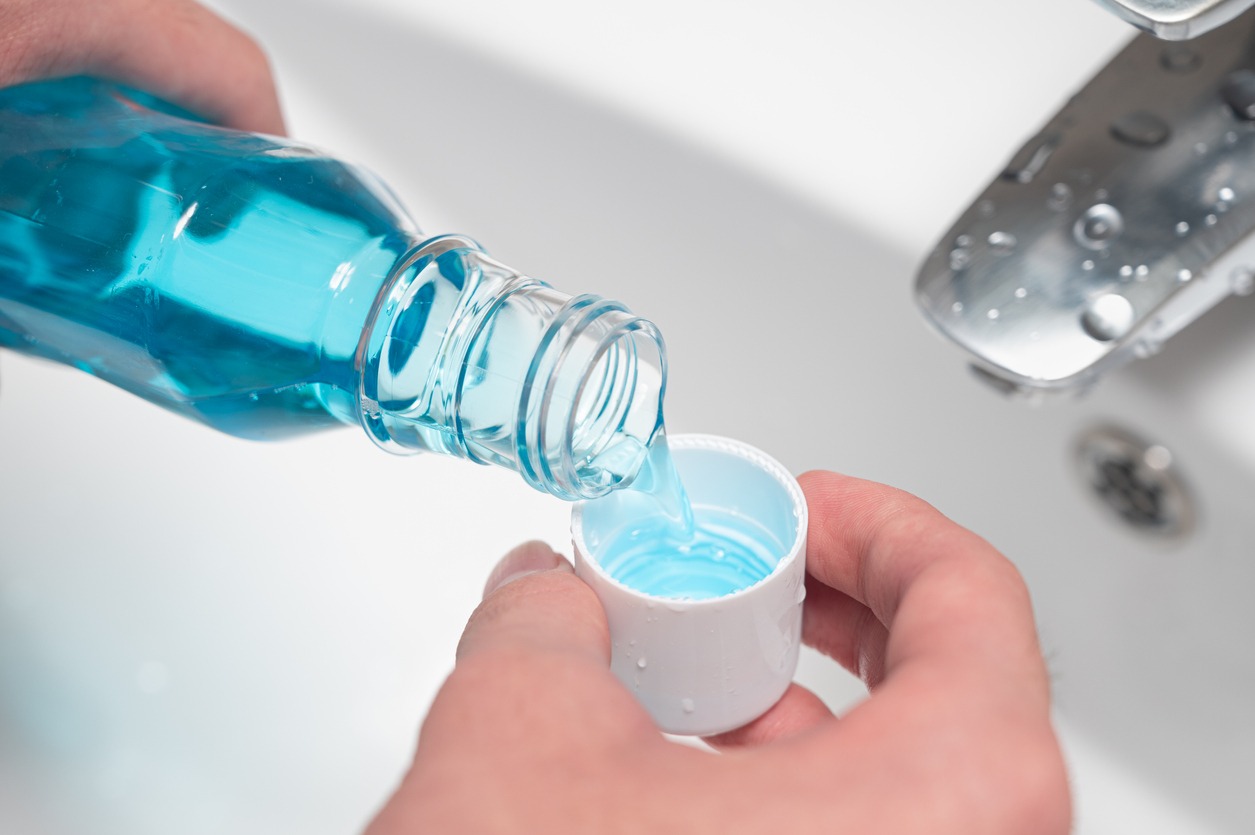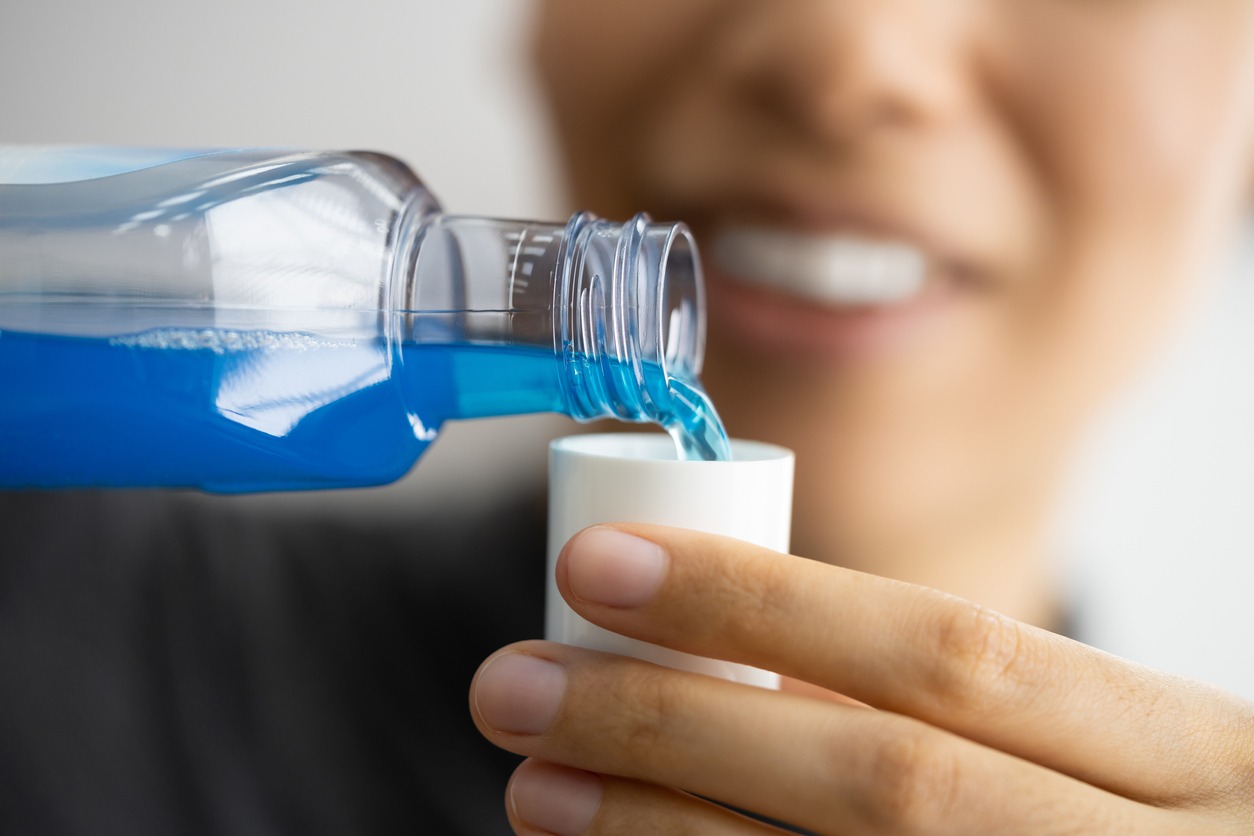A liquid product called mouthwash, also known as an oral rinse, is used to rinse your teeth, gums, and mouth. It is one of the top products to help you fight bad breath. To eliminate dangerous bacteria that may reside on your tongue and between your teeth, it typically contains an antiseptic. While some use mouthwash to combat bad breath, others use it to guard against tooth decay. In terms of oral hygiene, mouthwash is not a substitute for brushing your teeth or flossing, and it is only effective when used properly. It’s also critical to realize that not all mouthwashes can strengthen your teeth and that different product formulas contain different ingredients. Learn all there is to know about using mouthwash by reading on.
What Does Mouthwash Do?
Mouthwash can fight tooth decay and prevent cavities in addition to fighting plaque and gingivitis and freshening breath. Your oral health can be significantly improved with mouthwash. Fluoride-containing mouthwashes can even aid in the remineralization of your teeth. Active components for particular purposes are found in therapeutic mouthwashes. These medicinal mouthwashes contain fluoride, have antimicrobial properties to keep the mouth healthy and free of bacteria that cause bad breath or gingivitis, and can also relieve the effects of dry mouth.
There are mouthwashes made to help whiten teeth and remove surface stains. Highly pigmented or acidic foods like coffee, red wine, and tomato sauce can leave surface stains. These teeth-whitening mouthwashes assist in fading those surface stains and act as a shield between your teeth and stain-causing substances. Some therapeutic mouthwashes can relieve dry mouth by moisturizing the oral tissues, including the gums, teeth, and teeth, as well. The enamel on teeth can be strengthened by using a fluoride mouthwash. To find out what’s causing your dry mouth, speak with your dentist or dental hygienist. They might suggest a mouthwash made for those who have dry mouth or any other problem.
Why Use Mouthwash?
Mouthwash ensures that your breath is fresh and gives your mouth a clean, fresh feeling. Additionally, it is advantageous for your general oral health. By lowering the number of oral bacteria, mouthwash also lowers the amount of dental plaque that develops. When used properly, using mouthwash on a regular basis helps prevent cavities and, if the mouthwash contains fluoride, helps prevent periodontal disease. Additionally, this gives us the feeling of refreshment that we observe in some of the best dental care marketing.
Mouthwash is not strictly necessary if you floss once a day and brush your teeth thoroughly twice a day. However, the majority of dentists strongly advise incorporating mouthwash into your morning and nighttime routines. Additionally, mouthwash may be crucial for those who suffer from certain medical conditions like dry socket, tooth sensitivity, or xerostomia (also known as dry mouth). In fact, both common and specialty mouthwashes can become an ongoing part of these people’s treatment regimens.
When To Use Mouthwash?
Some people include mouthwash in their daily oral hygiene regimen. However, mouthwash can also be used as a last resort to eliminate bad breath. When to use mouthwash for bad breath really doesn’t have a hard and fast rule. However, unless you use it immediately following brushing and flossing, it won’t work to strengthen tooth enamel or combat gum disease. Before using mouthwash, teeth should be freshly cleaned for best results.
How Often Should You Use Mouthwash?
It is important to emphasize that mouthwash is not a substitute for brushing and flossing. Additionally, using mouthwash is not required to maintain a clean mouth. Most mouthwash products advise using them twice daily, following brushing and flossing.
Benefits Of Mouthwash
You might have heard that mouthwash is beneficial for oral health, but you might be unclear as to how it works. Mouthwash has a variety of potential advantages, but these advantages also depend on the ingredients and application methods. Some advantages of mouthwashes, depending on the kind, include:
- Mouth freshening
- Reducing gingivitis and/or plaque
- Whitening teeth
- Providing the mouth with antimicrobial advantages
- Relieving a dry mouth
- Adding fluoride to water to fortify tooth enamel
How To Use Mouthwash?
Depending on the mouthwash brand you choose to use, the product instructions may change. Always heed the directions on the package rather than what you read in a magazine. These are the standard usage guidelines for the majority of mouthwashes.
1. Brush Your Teeth First
Start by giving your teeth a thorough brushing and flossing. You can use any top electric brushes of your choice. Wait a while before using mouthwash if you’ve just finished brushing with fluoride toothpaste. The concentrated fluoride in the toothpaste can be removed with mouthwash.
2. How Much Mouthwash To Use
Fill a plastic measuring cup or the cup included with the product with your preferred oral rinse. Use only the recommended amount of mouthwash for the product. Typically, 3 to 5 teaspoons are used.
3. Ready, Set, Rinse
Swish the liquid in your mouth after emptying the cup. Avoid swallowing it. Mouthwash shouldn’t be consumed, and if you do, it won’t be effective. Gargle for 30 seconds while you’re rinsing. You might want to set a watch or try mentally counting to 30.
4. Spit It Out
Spit the mouthwash out into the sink.
Precautions When Using Mouthwash
Fluoride and alcohol are frequently found in high concentrations in mouthwash. High doses of either of these ingredients shouldn’t be consumed, especially by kids. For this reason, mouthwash is not advised for kids under the age of six by the American Dental Association. Adults should not swallow mouthwash on a regular basis. Use mouthwash to kill bacteria and hasten to heal if you have oral lesions or open sores in your mouth. However, if you have recurrent oral lesions, you should consult a dentist before using an oral rinse. Fluoridating and applying antiseptic to sores in your mouth that are caused by underlying medical conditions may do more harm than good.
When Mouthwash Is Not Enough
Speak to a dental expert if using mouthwash as directed isn’t improving your oral hygiene problems. It might be a sign that you require additional treatment, your dentist might suggest another product, or both. An infection or tooth decay may be the cause of persistent bad breath. Your dentist can suggest an alternative product or method if teeth whitening mouthwashes are not effective. Choosing mouthwash isn’t difficult, but there are many options available that can be confusing. Think about your top oral care requirements. For assurance that you are purchasing what you require, look for the ADA Seal and active ingredients. Talk to your dentist or dental hygienist if you have any questions.
If you are aiming to make your teeth whiter, you may check out our post on Exploring Different Teeth Whitening Options for some of the best tips and recommendations.
In Conclusion
Mouthwash can be used to rinse out plaque and fight gum disease as well as to prevent or stop bad breath. Mouthwash cannot take the place of routine brushing and flossing. Mouthwash must be used correctly in order to benefit your mouth. Mouthwash alone won’t be able to treat the underlying causes of chronic bad breath or gum disease. If you have any worries about persistent or chronic oral health issues, talk to a dentist.


